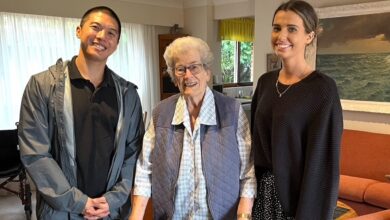Physios and dietitians essential to easing ‘arthritis crisis’

Arthritis Australia has called for "affordable, non-surgical care from physiotherapists, dietitians, and other allied health professionals" in a bid to address the nation's 'arthritis crisis.'
The term arthritis covers a wide range of inflammatory conditions that affect the joints, such us osteoarthritis, rheumatoid arthritis and gout.
It is estimated that around 15 per cent of Australia's population currently lives with a form of arthritis, resulting in a high burden on individuals and the healthcare system. The Australian Institute of Health and Welfare found that in the year 2020-21, cases of osteoarthritis and rheumatoid arthritis represented a health expenditure of $4.3 billion and $966.1 million respectively.
Arthritis Australia chief Jonathan Smither said the issue is placing unprecedented strain on communities, hospitals and health budgets.
“There’s a significant gap between the Care Standard and what is accessible to people with osteoarthritis under current funding models. Consumers lack affordable access to necessary care and are left with few alternatives to surgery. Hands-on support from allied health professionals for pain management, physical activity, and weight loss is crucial to control the rising number of surgeries,”
“If properly funded it will alleviate pressure on the hospital system and most importantly improve people’s health, quality of life and keep many in the workforce and actively contributing,”
The Australian Government’s Commission on Safety and Quality in Healthcare has delivered a revision of its Clinical Care Standard for osteoarthritis of the knee, which has affirmed that a majority of arthritis patients could improve their condition without surgery, if they had easier and more affordable access to quality non-surgical care.
“Over half of Australians living with osteoarthritis are not receiving care according to clinical guidelines. Our healthcare system incentivises high-cost, late-stage procedures, while failing to fund earlier lifestyle behavioural interventions," said leading authority on osteoarthritis Professor David Hunter.
"By providing better clinical care at an earlier stage, we can help individuals manage their arthritis more effectively and avoid or delay invasive surgeries to alleviate pain."
Related stories: New research on whether antibiotics prevent joint replacement infections | ‘I wasn’t willing to just accept it’: Life with osteoarthritis at 71 | New ‘one-stop shop’ for osteoarthritis promotes more holistic approach to care
The nation's healthcare system is currently averaging over 370 osteoarthritis associated hip and knee replacements per day and experts suggest the number will only climb in the coming years.
In a 2019 study by Monash University's Associate Professor Ilana Ackerman showed that knee and hip replacement surgeries for osteoarthritis are "expected to rise by up to 276 per cent by 2030, costing Australia’s health care system over five billion dollars."
"If surgery trends for osteoarthritis continue, Australia faces significant healthcare budget and health workforce implications," Associate Professor Ackerman said.
“In order to meet joint replacement demand in 2030 and beyond, investment in prevention programs designed to limit obesity and other causes associated with hip and knee burden in Australia demands serious consideration.”
During a Summit at Parliament House last week, Arthritis Australia urged the government to urgently address issues associated with arthritis and musculoskeletal conditions. Close to 90 consumers, clinicians, experts, peak groups and others came together to call for a revision to four key areas:
- Workforce: Utilising allied health professionals effectively in both public and private sectors, including new funding models and upskilling measures.
- Innovative Models of Care: Funding models of care in accordance with clinically recommended guidelines to improve patients’ quality of life, shorten surgical waiting lists and save the health system money.
- Out-of-Pocket Costs: Strategies to reduce the substantial expenses imposed on patients, including affordable access to allied health care.
- Research: Funding a Medical Research Future Fund Mission to turbo charge arthritis and musculoskeletal research to develop higher quality treatments and interventions.
Email: [email protected]





